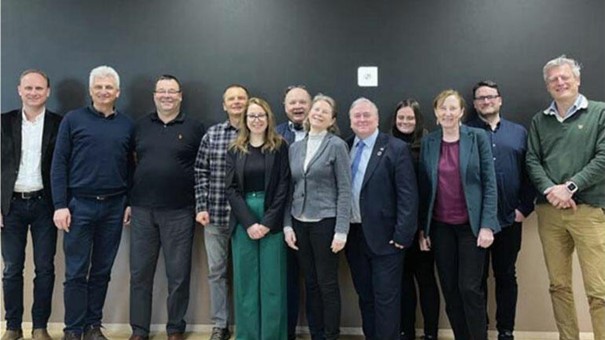A group of researchers from the University of South-Eastern Norway and Cracow Economic University have studied applications of micro-credentials.
They have found that micro-credentials may have a significant impact on higher education.
Researchers from the University of South-Eastern Norway (USN) have studied applications of micro-credentials as part of a joint project with Cracow Economic University.
The project title is “Alignment of ICT-Related Curricula with Labour Market Expectations”, and the research is presented in a report titled “Analysis of the concept of micro-credentials and its feasibility of implementation at CUE and USN” (PDF).
The project became very relevant when the Council of the European Union (EU) on 16 June 2022, adopted a Recommendation on a European approach to micro-credentials for lifelong learning and employability.
The Recommendation seeks to support the development, implementation and recognition of micro-credentials across institutions, businesses, sectors and borders.
“Shorter modules, down to one ECTS, will make it easier for students to customize their study programme,” says Professor Lasse Berntzen at USN.
A programme for the aviation sector: Concurrently, researchers from the same group have been involved in a competence development programme for the aviation sector.
This programme consists of a total of 40 one-ECTS modules within four areas: Cyber security, general security, sustainability, and compliance.
Each module includes:
- an introduction to the area
- eight 15-minute online lectures
- eight 15-minute podcasts
- and a quiz
Each student records two videos to introduce themselves and reflect upon the acquired knowledge and skills.
Three new programmes
The competence development programme has led to three new programmes:
- one for the maritime sector
- one for the recycling businesses
- and one for the agricultural sector
Based on the experiences from the aviation sector, the modules have been inflated to 2.5 ECTS, and the lectures and podcasts are 20 minutes instead of 15 minutes.
Some of the modules also have physical gatherings to give participants hands-on experience and provide real-life demonstrations.
These programmes will start in the spring of 2024, and each programme will have new editions in the following two years.
“The project has provided a theoretical context for these programs, and shows how research can impact curriculum development, especially when targeting continuing education programs”, says Professor Lasse Berntzen.










